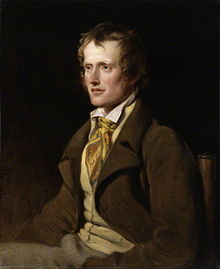I used to look forward to growing old. I had this glowing picture of me, with distinguished grey hair and a kindly twinkle in my eye, distributing Good Advice to my children and grand children, while my wife sits by the fire, knitting and stroking the cat, ( but not at the same time, obviously.) I would be looked up to, the family patriarch. My grandfather (only one, the other died years ago) was like that.
Well I got the distinguished hair. It’s a bit thin on top, but I have lovely silver sideboards. I look like the meeter – and- greeter that the BBC wheels out to meet political bigwigs, who have come to have their noses tweaked by John Humphries. He looks like an ambassador. I could do that.
I’m a bit short on wisdom though. It’s not quite that. I have wisdom but….it’s irrelevant. I can talk about the Elizabethan theatre, the history of my city of York, the wingspan of a Supermarine Spitfire ( 32’ 6”) if you’re interested, or the back catalogue of the Stones – but no-one is really interested any more. I do not understand the social media. Why do they all talk to each other in unintelligible abbreviations ? What’s wrong with the phone ?
Why do they have to take a picture of themselves every three minutes ? Do they doubt their very existence ?
I still use email. For special friends, I will write a letter. Remember ? That pen and ink stuff ? I can sometimes use Twitter, but it’s a matter of stab and see where you get to.
And all this is entirely irrelevant. It has always been the same. We old codgers have had our day because that’s evolution, man. We’re irrelevant now, and extinct soon.
And we asked for it. Take one tiny aspect of daily life – fashion. Fashion is for the young and for elegant mature ladies. Not old guys. Beards are fine for hipsters, with tartan shirts and climbing boots. But any man over sixty should never grow a beard- you should have got that out of your system forty years ago. Look at Jeremy Corbyn ( difficult, I know, but do try) He looks (a) as though he’s forgotten to shave and (b) like Dr Shipman the Mad Medic. It’s a uniform – they all look the same.
Old geezers should never, under any circumstances, show their legs. Old male legs are indistinguishable from chicken legs in Sainsburys. And the shorts they wear ! Great bags of canvas rippling in the breeze ! It just looks wrong, guys ! Get a pair of nice chinos and a summer jacket and you look like a film director.
And don’t wear replica football shirts either. You look like a wazzock. Stretched tight over a beer belly and balanced on skinny legs, you do not do yourself justice. And don’t wear sandals, don’t wear socks with sandals – just quit the whole sandal thing. Without, your feet look like lumps of squashed haddock.And the toenails ! Chipped and splintered and discoloured like lumps of Roman rooftile. And with socks ? No ! The horror ! The horror !
Mind you, I have come a fashion that is totally the fault of Young Dudes – and that is a too tight suit with shoes – but no socks ! Can you imagine what it’s like in there ? Slippery and reeking with footpong ! Is this likely to pull the birds ? Maybe -how should I know ?
No – it’s time to step back and let them get on with it.
Every twenty four hours a day becomes history.
That’s profound, that is.



